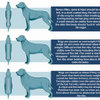9 year old lab with allergies - food help!
citymomof3
15 years ago
Related Stories

HEALTHY HOME18 Ways to Allergy-Proof Your Home
If you're itching to reduce allergy symptoms, this mini guide to reducing allergens around the house can help
Full Story
MOST POPULARHouzz Tour: A Playful Home Drawn Up by 8-Year-Old Twins
Plans for this innovative tower home in Melbourne were going nowhere — until the homeowners’ twins came to the rescue
Full Story
PETSHow to Help Your Dog Be a Good Neighbor
Good fences certainly help, but be sure to introduce your pup to the neighbors and check in from time to time
Full Story
MOST POPULAR9 Real Ways You Can Help After a House Fire
Suggestions from someone who lost her home to fire — and experienced the staggering generosity of community
Full Story
THE HARDWORKING HOME8 Laundry Room Ideas to Watch For This Year
The Hardworking Home: A look at the most popular laundry photos in 2014 hints that dog beds, drying racks and stackable units will be key
Full Story
MOST POPULAR7 Ways to Design Your Kitchen to Help You Lose Weight
In his new book, Slim by Design, eating-behavior expert Brian Wansink shows us how to get our kitchens working better
Full Story
HOUZZ TOURSHouzz Tour: Mixing It Up in a Century-Old Edwardian
Different eras, patterns and textures mingle beautifully in a Canadian interior designer's home and 'design lab'
Full Story
SELLING YOUR HOUSE10 Low-Cost Tweaks to Help Your Home Sell
Put these inexpensive but invaluable fixes on your to-do list before you put your home on the market
Full Story
PETS6 Ways to Help Your Dog and Landscape Play Nicely Together
Keep your prized plantings intact and your dog happy too, with this wisdom from an expert gardener and dog guardian
Full Story
GARDENING GUIDES12 Tips to Help You Start an Edible Garden
Get on your way to growing your own vegetables with a raised bed or a few containers on the patio
Full Story







cat_mom
spiritual_gardner
Related Professionals
Asbury Park Architects & Building Designers · Clive Architects & Building Designers · Linton Hall Interior Designers & Decorators · Peachtree City Furniture & Accessories · Springdale Furniture & Accessories · Fort Carson Furniture & Accessories · Harrison Cabinets & Cabinetry · Boston Flooring Contractors · Brooklyn Park Flooring Contractors · Kendall West Flooring Contractors · Orem Flooring Contractors · Toledo Flooring Contractors · Westminster Flooring Contractors · Wixom Flooring Contractors · Wyomissing Flooring Contractorsmrs_tlc
Meghane
mrs_tlc
centralcacyclist
runsnwalken
citymomof3Original Author
mrs_tlc
joepyeweed
spiritual_gardner
spiritual_gardner
spiritual_gardner
mazer415
Meghane
acorn
mazer415
dianahoeft
Linda Doherty
lascatx
dianahoeft